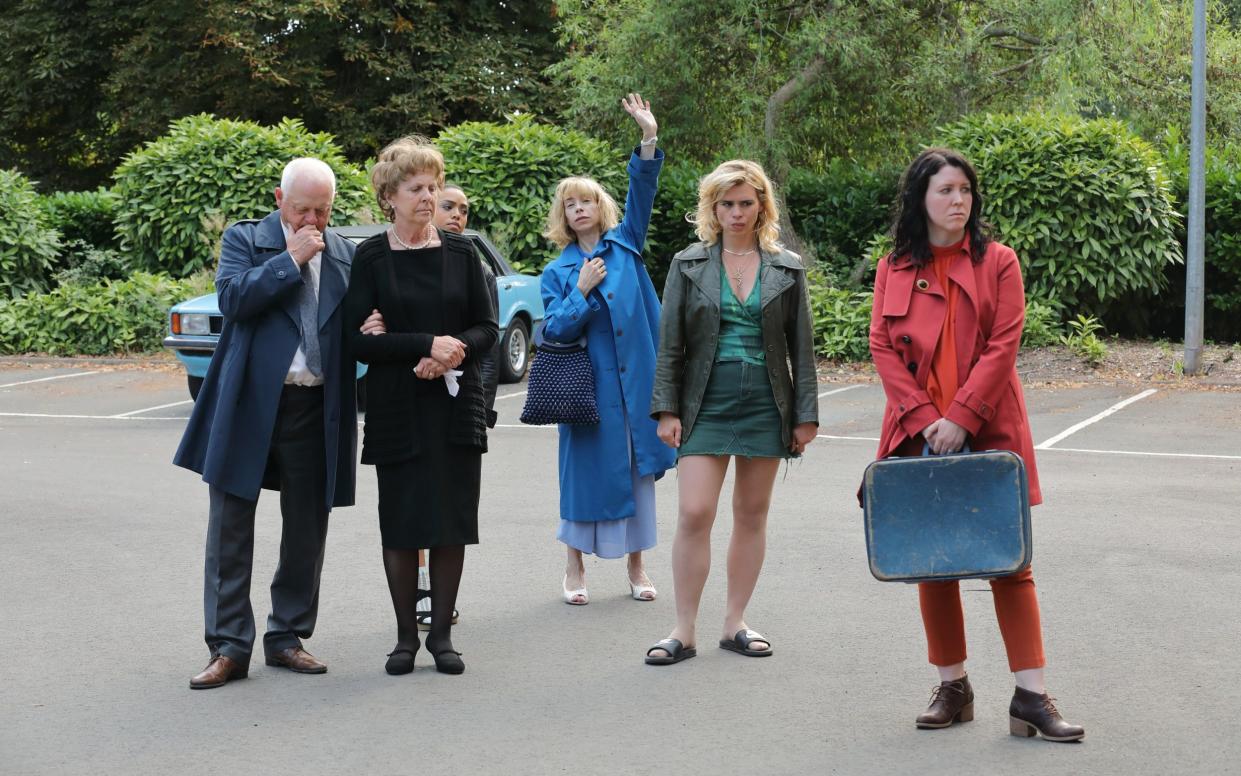Eternal Beauty, review: even Sally Hawkins can’t make paranoid schizophrenia funny

Dir: Craig Roberts. Cast: Sally Hawkins, David Thewlis, Billie Piper, Penelope Wilton, Alice Lowe, Morfydd Clark, Robert Pugh. 15 cert, 94 min
Eternal Beauty is full of extremely talented people who aren’t quite sure what they’re doing. This dark comedy about depression – or put in another light, about a very British form of bottomless misery – cycles through an awful lot of tones and gimmicks. It’s as apt to remind you of Ingmar Bergman’s Cries and Whispers, or Roman Polanski’s Repulsion, as anything strictly funny – ambitious reference points, at the very least, for its young writer-director Craig Roberts, best-known for his lead role in Richard Ayoade’s Submarine (2010).
Roberts made his directing debut at a mere 24 years old, with the coming-of-age flick Just Jim (2015), and here rolls his sleeves up with a close-to-impossible assignment: giving us a brightly-coloured indie take on paranoid schizophrenia. He’s also wrangling a substantial cast, with an especially big ask of a lead performance from Sally Hawkins – such a delight in general, and an actress it’s hard not to root for, even when every successive scene that might get you raising a rallying fist is then prone to make you helplessly gnaw on it.
Hawkins is Jane, a hopeless spinster who has never got over being jilted at the altar – a trauma from practically another life, which we experience with Morfydd Clark as her younger self. She has sunk ever since into gibberish and monotony, with next-to-no support from her baffled and selfish family, except her married sister Alice (Alice Lowe), who at least tries her best. They have a benign enough dad who barely speaks (Robert Pugh), and never combats their mother (Penelope Wilton), a cruel matriarch who blatantly favours the blonde one of the sisters, a beauty queen played by Billie Piper as a jaded princess looking for her escape.
The film was shot in Wales but doesn’t appear to be set there – it’s based in a sort of default miserable-British-indie suburbia, where the fixed-to-the-wall landlines and chunky TV sets seem to locate it in an equally unspecific Thatcherish era of general glumness. For a lackadaisical half-hour in the middle, David Thewlis pops up as Mike, a hipster musician in a Trilby and Converse, who tries to put the moves on Jane, with aggressive forwardness, in the waiting room of their psychiatric clinic. When she relents, the film turns for a spell into its strained equivalent of PT Anderson’s Punch-Drunk Love – a sort of redemptive amour fou duet with a bouncily lyrical score. But the gaudy bubble soon bursts.
The main impression here is of Roberts trying various gambits out until breaking point, and foisting some unfortunately comedic notions of mental illness – well-intended as they surely are – upon an antic, all-stops-out Hawkins. When Jane turns up at a Halloween party and thinks there are real monsters all around, the sequence is trying for an after-school-special zaniness, but the bored camera keeps us on the outside looking in. And Roberts can’t help groping for punchlines – a fridge full of severed limbs – when he hasn’t set them up properly.
Fragments work. Lowe gives an impressively gritty performance in the circumstances, and there’s one shot of Pugh lying inconsolably on a sofa which is a tiny gem of acting and design. The film’s main misjudgement is simply trying to do too much – a more honourable crime than trying too little, but the subject here needs more than just free-associative compassion or the patronage of this cast giving Roberts a helping hand.
It needs a persuasive tone – Will Sharpe’s brilliantly murky Channel 4 sitcom, Flowers, is a model for this – and a confident execution that doesn’t just borrow snippets from every psychodrama on the list. You can dress a film up like an edgy comedy on dead-serious themes, but that doesn’t necessarily mean it was crying out to be one.
Eternal Beauty is in cinemas from Friday

 Yahoo News
Yahoo News 
